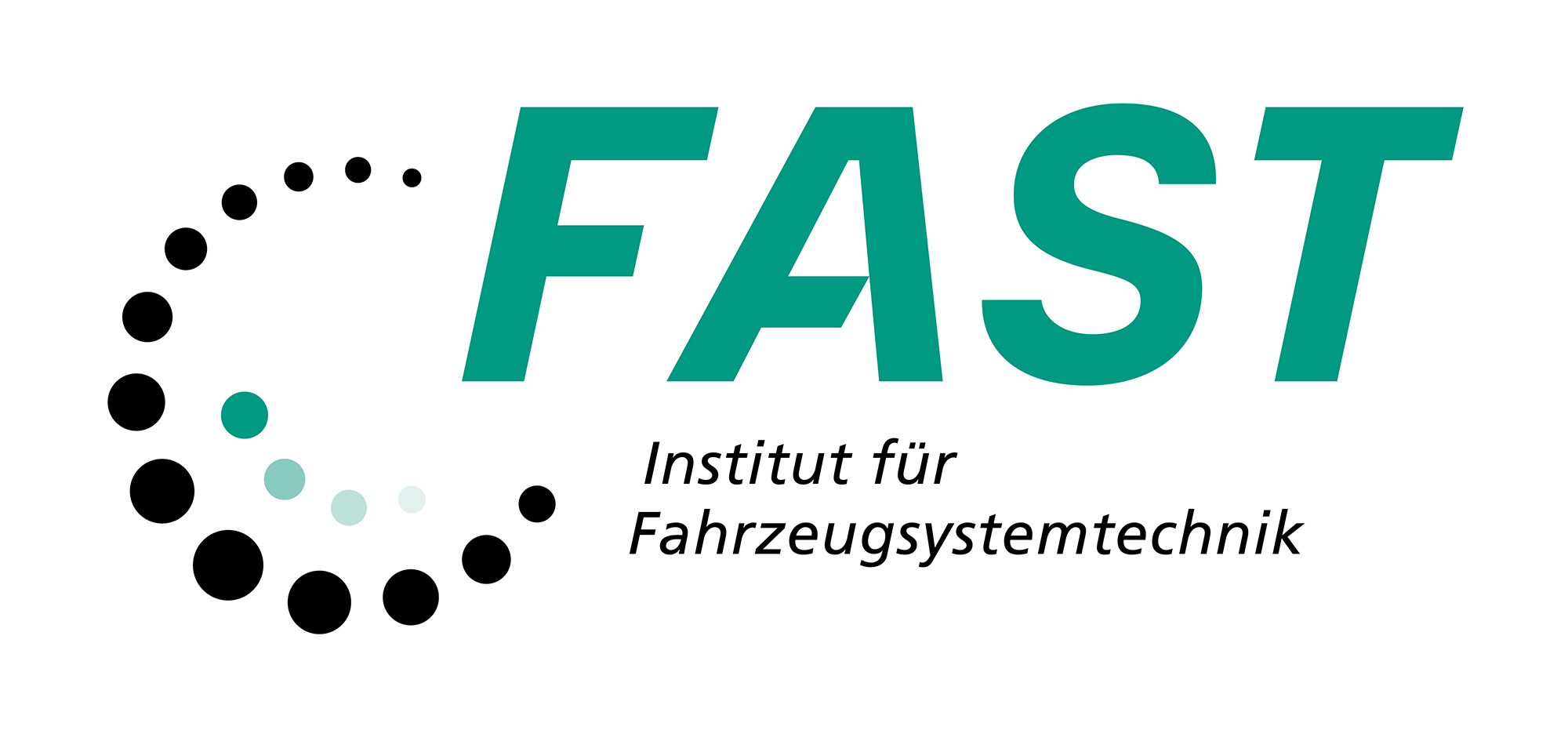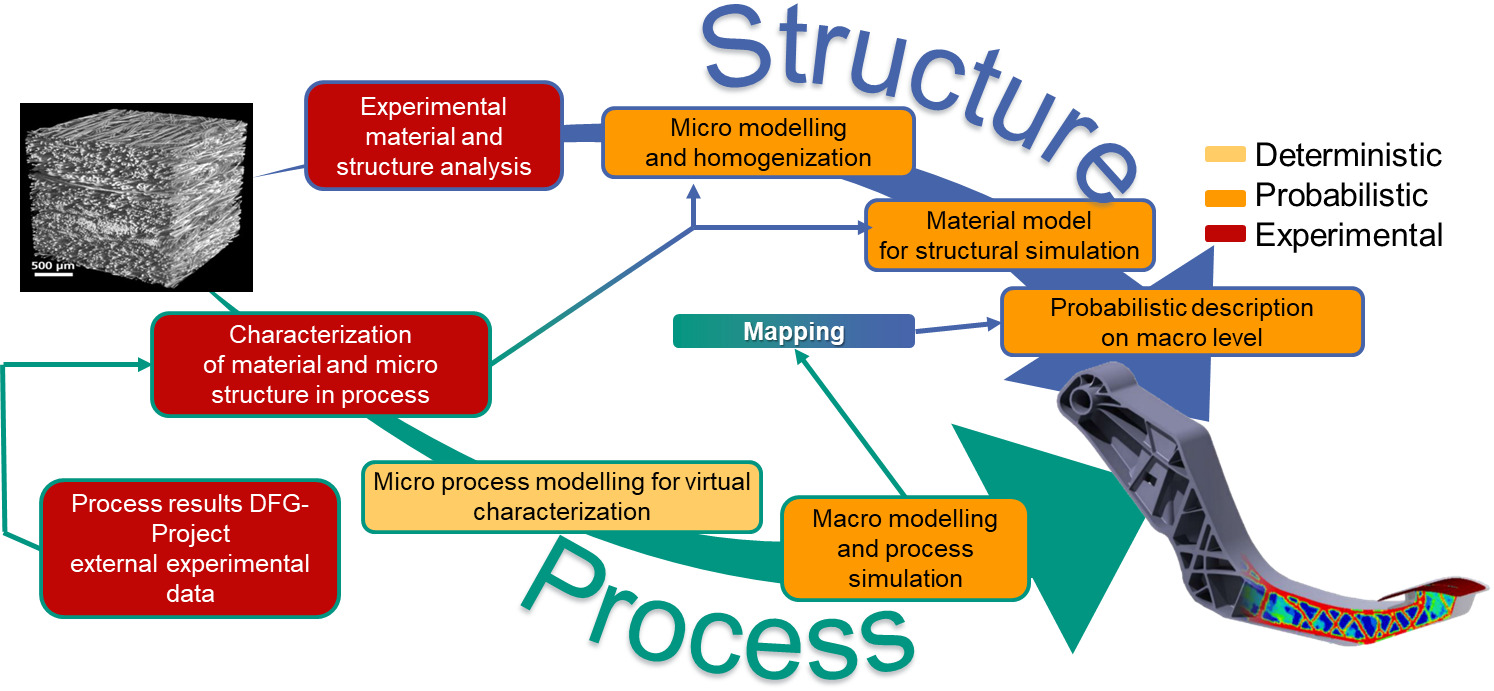DFG - MeProSi
- Contact:
- Funding:
Deutsche Forschungsgemeinschaft (DFG)
- Partner:
KIT-FAST, Fraunhofer IWM
- Startdate:
August 2021
- Enddate:
Juli 2025
Multiscale and probabilistic simulation chain for consistent representation of the manufacturing process and component behavior of disordered fiber-reinforced injection molded components (MeProSi)
The MeProSi project aims to enable a prediction of manufacturing-related aleatory scatter in the behavior of injection molded components. This will be achieved by probabilistic multiscale simulation along the process chain, from scatter-affected processing via the fuzzy microstructure to the fuzzy component behavior. Based on process simulations on micro and macro level the determination of the location dependent fuzzy microstructure is performed. This is analyzed and statistically described by probabilistic homogenization via statistical volume elements as substructures of large-scale representative volume elements. On this basis, a random field description of the material behavior at component level is performed. Thus, the influence of fuzziness in the process and the propagation of microstructural scatter to the structural behavior can be analyzed and evaluated. The inherent fuzziness in material and component behavior is thus made controllable in the application. The focus is on aleatory uncertainties.
To achieve the goal, a combined experimental-numerical approach is pursued. The project is being worked on in close coordination at both institutes, with KIT-FAST performing the process-side simulations and the accompanying experimental process analyses, while IWM is responsible for the modeling, accompanying experimental characterization, and validation on the structure side.
Figure 1: MeProSi project
The research focus of KIT-FAST consists of the determination of relevant model and material parameters in process behavior using micromodels of individual fibers and surrounding matrix. Microsimulations based on the SPH method are used to numerically analyze fiber interaction behavior, fiber breakage behavior, sensitivity of process or material scattering and inhomogeneity. This serves the realization of probabilistic injection molding simulations on a macroscopic simulation level.
The probabilistic simulation is created by extension of existing methods and boundary conditions. The implementation enables improved process simulation considering fuzziness as well as input for structural simulation. The existing simulation method is extended with regard to fiber breakage and probabilistic disturbance variables such as temperature fluctuations, fiber orientation and length distribution, etc.


